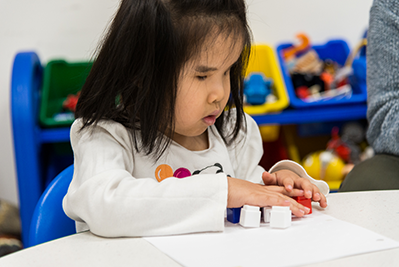Activities to Promote Literacy in the Primary Grades
Leave short braille notes in your child's lunch box or on her pillow before bedtime.
Help your child label important personal belongings and school supplies with his name.
It is important for your child to read at home as well as at school. As soon as your child has begun to read braille, arrange with the teacher of the visually impaired to have a braille book or simple teacher-made story sent home frequently. It should be something your child can read with at least 90% accuracy—usually a story that has been worked on at school. The book or story can be the same for several nights in a row, or your child may choose to read an old favorite. Sometimes it's fun to take turns reading pages or paragraphs.
Consider building a braille library for your child. Purchase braille books from Seedlings, National Braille Press, or the Children's Braille Book Club (See "Sources of Braille Children's Books and Magazines" in the Related Articles list below).
Encourage your child to share his or her knowledge of braille with others at church, as part of a scout troop program, with grandparents, etc. This is a special area of expertise that your child should be proud of!
Write on the brailler with your child, perhaps composing a thank you letter or a shopping list. You braille most of the words, speaking the letters and words as you write, but have the child "help" you by brailling letters or words that he knows. Always take time to read back the writing once it is out of the braillewriter.
Purchase or borrow braille games (such as Uno, Bingo, Scrabble, and braille dice for the whole family to play.) (See "Sources of Adapted Materials.") Many simple regular board games can also be labeled in braille.
